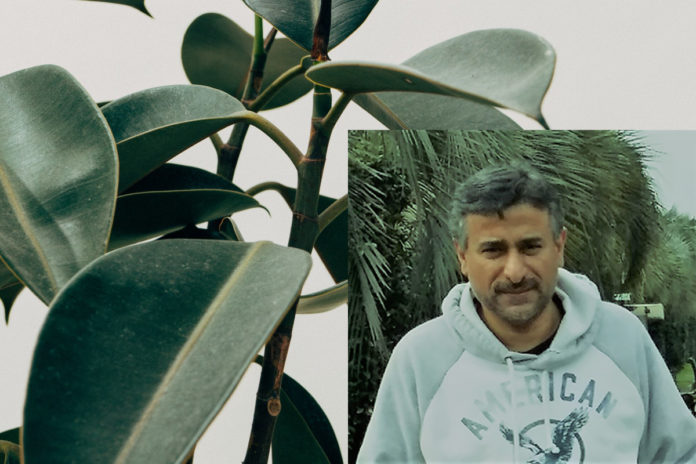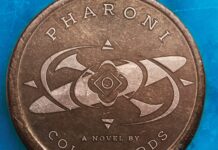Tell us a bit about yourself.
I graduated from King Faisal University in Hofuf, Saudi Arabia, with a degree in foreign languages and education. I taught English for many years in Royal Commission schools in Jubail, which I enjoyed greatly. I am a father of three wonderful children and a husband to a very special lady. I became interested in English during my final years of high school, and proceeded to major in English and take sociology as my minor in college.
Since your mother tongue is Arabic, how are you able to maintain and improve your English skills?
I graduated from a university in Saudi Arabia, and did not attend an American or British college or language training center. In my experience, reading is therefore the key to mastering the English language and has become an essential part of my daily life over the last twenty years. Besides reading, I am also passionate about revering, gathering, and preserving books from every country I visit. For me, this is a sort of ‘Gentle Madness,’ as described by Nicholas A. Basbanes.
Could you please explain how you became interested in literary translation?
Reading consumes most of my time. I love to hold a book I am interested in and lose myself in it. My early readings revolved around English and American literature, before I turned to other international literature written in English. I started translation as a hobby when I became interested in Arabic literature, and I have lately delved deep into the world of Arabic short stories. Some of these stories feature themes of love, kindness, and compassion, and consequently provide an uplifting feeling. When I finish reading an interesting story, I want to be able to share it with others who love the same kind of narrative in other languages.
What are the different challenges – and possibilities – when it comes to translating fiction and non-fiction works?
I don’t consider myself to be a full-time or professional translator. Whenever I have spare time, I tend to transpose stories and recreate them in another language. I see translating as an act of writing, as it involves rewriting an original text. I have the tendency to paraphrase, but I try to translate as much conversation detail as possible, including grammatical errors. The main obstacle a translator faces in their work is overcoming the constraints of interpreting cultural concepts from one language to another. Certain literary devices and figures of speech are hard to translate from Arabic. It is sometimes necessary to take a bold step within restricted limits, and personally interfere by adding or deleting segments to serve the text’s interest. I often read an incredibly beautiful text and face some flaws that I must either avoid or reconstruct in the target language. Most of my non-fiction translations are written from English into Arabic, but I most enjoy translating fiction from Arabic into English. To translate fiction or any other literary works, a translator should be literarily and linguistically proficient. Consequently, most of my readings revolve around literary works written in English. A combination of personal approach and taste helps me more to perfectly present the text for the English reader.
What motivated you towards translating works of Arab authors?
As I mentioned earlier, the perfect story surprises me and makes me wonder about its refined beauty. Through these feelings, I find myself compelled to share the story with others in a different language. Unfortunately, the quantity and quality of translations from Arabic into English are insufficient. Many materials are translated by westerners or non-Arabs whose knowledge of Arabic and its varied cultures is poor. I fully realize that my translations do not add considerable knowledge, but I try my best to make others aware of the richness of Arabic literature. However, I admit that I feel guilty for having failed to take necessary and reasonable measures to do more. I always tell my friends that I translate for my own pleasure and for those who are interested in the stories I like.
What are your current/ future literary projects?
It thrills me when I see my translations appear in known literary journals, such as Columbia Journal, The Malahat Review, The Chattahoochee Review, Adelaide Literary Magazine, Asymptote Journal, Litro Magazine, Denver Quarterly, and Fiction International, among others. More of my translated stories are also due to be published over the next three months. Additionally, last March, I was about to push a manuscript of translated flash fiction from the Arab world to publication, but the COVID-19 pandemic has delayed the implementation of this idea for some time
Have you ever attempted writing something of your own? If not, why?
Pulitzer Prize-winning novelist William Kennedy, author of Ironweed, dedicated his book to writers who keep a manuscript in their desk drawers. Similarly, I keep several papers on my PC. When I compare my writings to the ones I read and translate, my motivation to keep them hidden increases. If I do not have something worthy of publication, there is no need to occupy readers with unattractive writing. Who knows, someday I may create a story that surprises the readers, alike to the one I translated and published here in the Modern Literature Journal.
About the Author
Essam M. Al-Jassim is a Saudi writer and translator. He taught English for many years at Royal Commission schools in Jubail, Saudi Arabia. He received his bachelor’s degree in Foreign Languages and Education from King Faisal University, Hofuf. His translations appear in a variety of online and print Arabic and English literary journals.
















